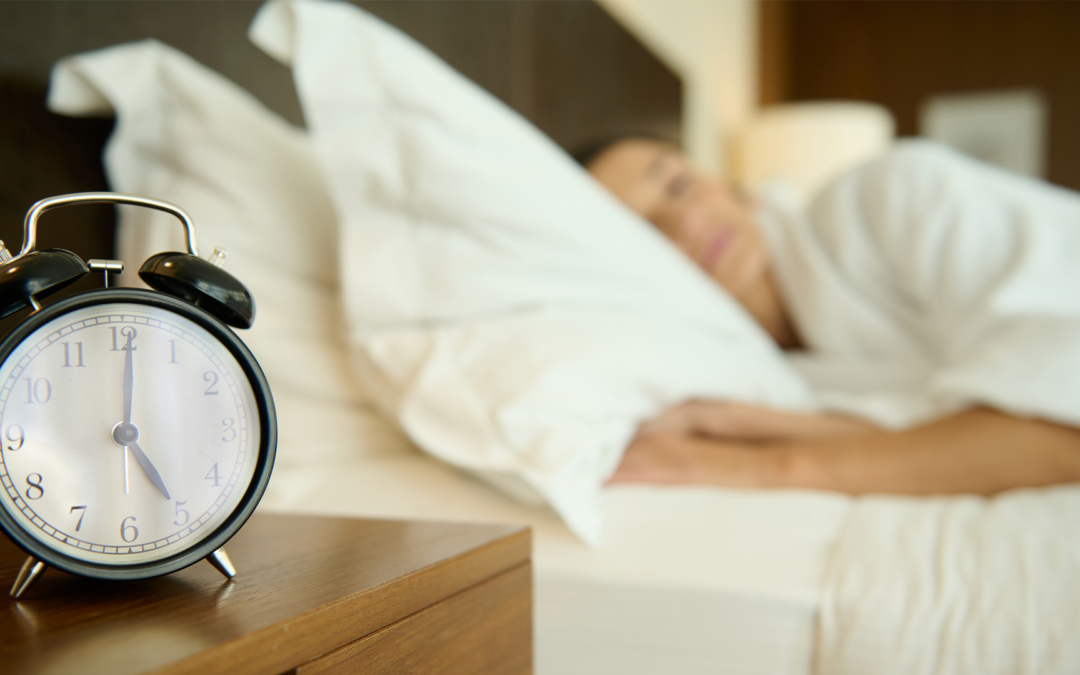One of the biggest challenges many with ADHD face is maintaining a good sleep schedule. You have all the best intentions to get a good night’s rest, but then you’re left with racing thoughts, random surges of energy, and panic when you remember you didn’t cross something off your to-do list. Here are some tips to help you get the rest you need, to have better sleep with ADHD.
Understand the ADHD-Sleep Connection
First, it’s important to recognize that ADHD can significantly impact your sleep. Many people with ADHD experience difficulties falling asleep, staying asleep, or waking up feeling rested. This is due to the unique way ADHD affects your brain’s regulation of attention and impulses, which can make winding down at night particularly challenging.
Establish a Consistent Routine
One of the best ways to improve your sleep is by establishing a consistent bedtime routine. Our bodies thrive on routine, and having a set schedule can signal to your brain that it’s time to start winding down. Aim to go to bed and wake up at the same time every day, even on weekends. This consistency helps regulate your internal clock and can improve the quality of your sleep over time.
Create a Relaxing Bedtime Ritual
Develop a calming pre-sleep ritual that helps you transition from the busyness of the day to a more relaxed state. This could include activities like:
- Reading a book (preferably not on a screen)
- Taking a warm bath
- Practicing relaxation techniques such as deep breathing, meditation, or gentle yoga
- Listening to soothing music or white noise
Avoid stimulating activities like watching TV or using your phone, as the blue light emitted by screens can interfere with your body’s production of melatonin, the hormone that regulates sleep.
Optimize Your Sleep Environment
Your sleep environment plays a crucial role in the quality of your rest. Ensure your bedroom is conducive to sleep by:
- Keeping it cool, dark, and quiet. Consider using blackout curtains and a white noise machine if necessary.
- Investing in a comfortable mattress and pillows. Your comfort is key to a good night’s sleep.
- Removing distractions. Keep your bedroom clutter-free and reserve it for sleep and relaxation only.
Watch Your Diet and Exercise
What you eat and how active you are can significantly impact your sleep. Try to:
- Avoid caffeine and heavy meals close to bedtime. These can keep you awake or cause discomfort that disrupts sleep.
- Engage in regular physical activity. Exercise can help tire your body and make it easier to fall asleep. However, try not to exercise too close to bedtime, as it might have the opposite effect.
Manage Your ADHD Symptoms
Effective management of your ADHD symptoms during the day can also lead to better sleep at night. Here are a few strategies:
- Use medication responsibly. If you take medication for ADHD, talk to your doctor about the best timing and dosage to avoid it interfering with your sleep.
- Practice time management. Break tasks into smaller steps and use tools like timers and planners to keep you on track, reducing the likelihood of late-night scrambling.
- Incorporate mindfulness practices. Techniques like meditation can help you manage stress and calm your mind before bed.
Limit Naps
While it might be tempting to take a nap during the day, especially if you’re feeling exhausted, try to limit naps to ensure you’re tired at bedtime. If you must nap, keep it short (20-30 minutes) and avoid napping late in the afternoon.
Seek Professional Help
If you’ve tried various strategies and still struggle with sleep, it might be time to seek professional help. ADHD coaching can provide personalized guidance tailored to your unique needs and challenges. A coach can help you develop and stick to a sleep routine, manage your symptoms more effectively, and find solutions that work for you.
Maintaining a good sleep schedule with ADHD can be challenging, but it’s not impossible. By establishing a consistent routine, creating a relaxing bedtime ritual, optimizing your sleep environment, watching your diet and exercise, managing your ADHD symptoms, limiting naps, and seeking professional help if needed, you can improve your sleep and, in turn, your overall quality of life. Better sleep with ADHD is possible!
Remember, with the right support and strategies, you can lead a more structured, productive, and fulfilling life. Sweet dreams!


Recent Comments